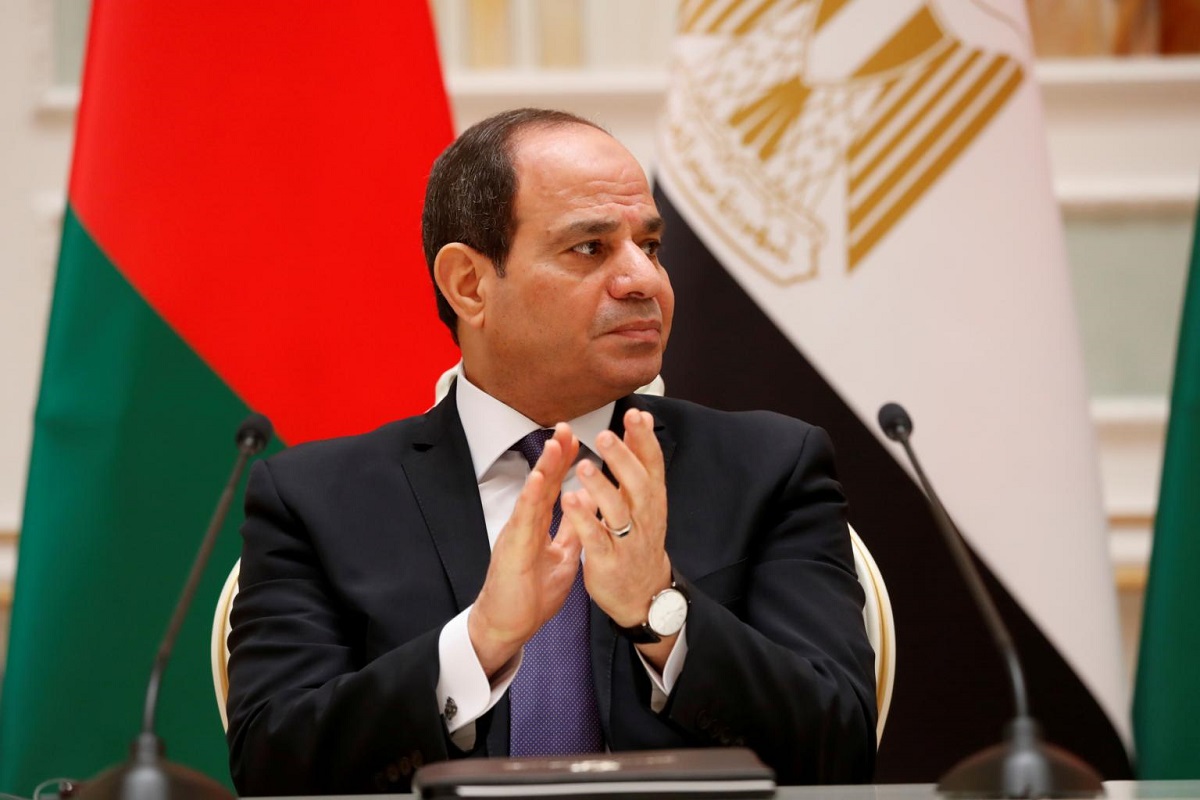IDF says more aid lorries reaching Gaza, UN confirms numbers are up
More humanitarian aid is reaching the Gaza Strip, with more than 400 lorries arriving on some days last week, an Israel Defense Forces (IDF) spokesman has said.
As Egyptians cast their votes on Sunday in a presidential election set to secure President Abdel Fattah al-Sisi a third term, their nation finds itself at a critical juncture, grappling with economic woes and the turbulence in neighbouring Gaza.

Egyptian President Abdel Fattah El-Sisi [file photo]
As Egyptians cast their votes on Sunday in a presidential election set to secure President Abdel Fattah al-Sisi a third term, their nation finds itself at a critical juncture, grappling with economic woes and the turbulence in neighbouring Gaza. The electoral process, however, is not devoid of controversy, with critics dismissing it as a facade in the wake of a prolonged crackdown on dissent. Against the rhythmic backdrop of patriotic songs and the omnipresence of Mr Sisi’s image, the electoral landscape is complex. The economic challenges facing Egypt are substantial, ranging from near-record inflation to a chronic foreign currency shortage.
The promises of stability and security from the President resonate with some voters, particularly those who have weathered the storm of conflict on Egypt’s borders. Yet, scepticism looms large, with critics decrying the electoral process as a sham. A decadelong crackdown on dissent has left an indelible mark, raising questions about the authenticity of political pluralism. The presence of riot police and plainclothes officers at polling stations adds to the narrative. For many Egyptians, the election is accompanied by a sense of disillusionment. Some admit to being aware of the electoral process but confess to a lack of clarity on its timing. The massive campaigns of President Sisi dominating the streets stand in stark contrast to the uncertainty felt by citizens regarding the very event they are meant to participate in. The candidates standing against the incumbent lack high-profile status, and the withdrawal of a prominent challenger in October raised eyebrows. Accusations of officials targeting his supporters and subsequent dismissals by the national election authority only add fuel to the scepticism surrounding the process. Yet, in the bustling cafes of Cairo and the streets of Giza, diverse voices emerge. While one university student expresses her intent to vote for President Sisi, citing a desire for stability, others reject the idea of voting, deeming the outcome predetermined. This diversity in perspective reflects the complexity of opinions.
Economic concerns resonate strongly among voters, with complaints about prioritisation of costly mega-projects over addressing the everyday struggles of the population. Even President Sisi’s supporters stress the urgent need to bring down soaring prices of essential commodities. The distribution of basic commodities near polling stations adds a layer of complexity to the narrative. While some voters appreciate the gesture, disappointment lingers as certain items, like sugar, are conspicuously absent. The scene is further clouded by reports of voters being bussed into polling stations, raising questions about the authenticity of grassroots support. It is clear that Egypt stands at a crossroads. The dichotomy between those seeking security and stability under President Sisi and those disillusioned by economic challenges and political restrictions underscores the multifaceted nature of the nation’s reality. The world awaits the outcome on December 18.
Advertisement
Advertisement